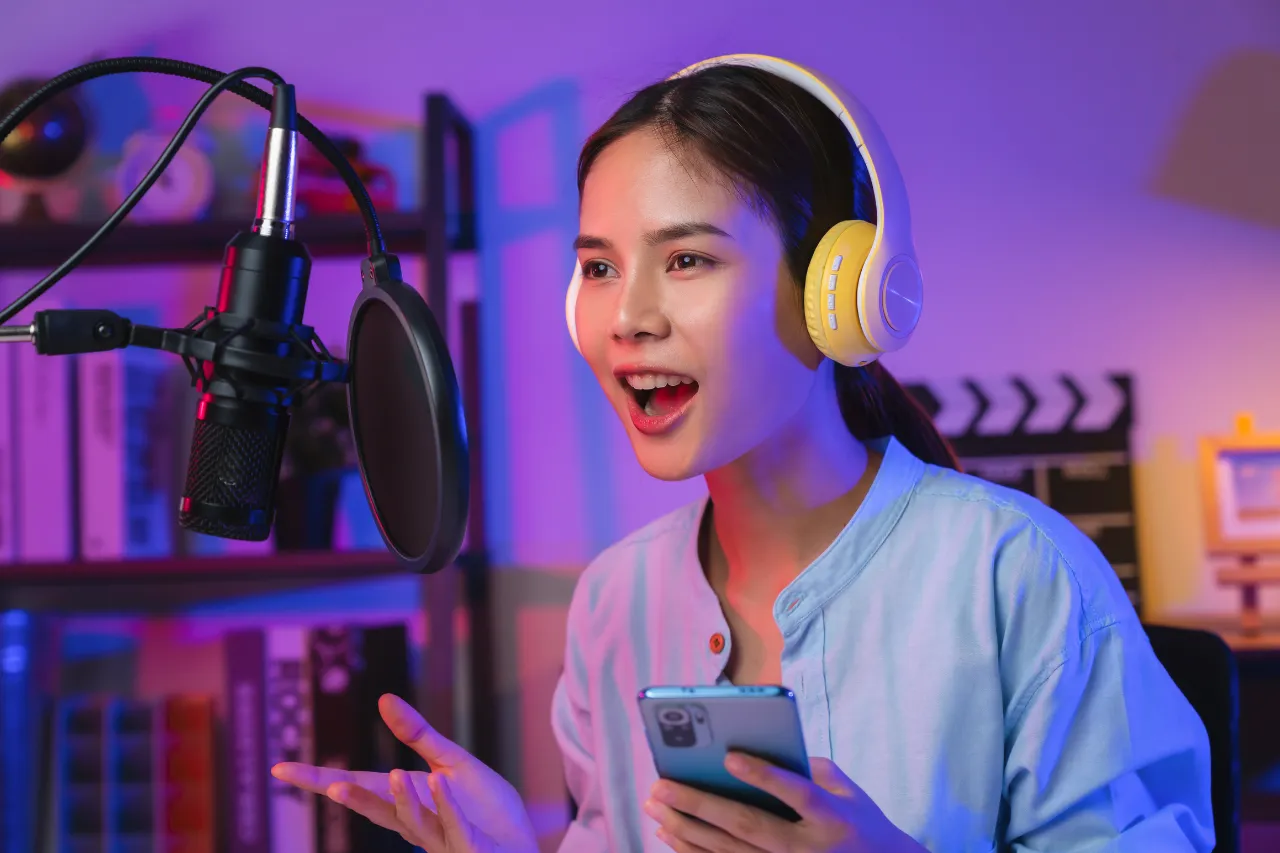Content creators need to understand the legalities involved in their collaborations, and having proper contracts in place is essential for protecting their rights and preventing conflicts. Collaborating with brands or other content creators is an exciting opportunity, but it comes with potential risks that cannot be ignored. That’s where Creator Contracts come into play.
Creator Contracts are legal agreements that govern the terms of content creator collaborations, providing a blueprint for a successful partnership. Whether you’re an influencer working with a brand or a content creator collaborating with fellow artists, these contracts outline the expectations, responsibilities, and legal protection for all parties involved.
From Idea to Contract
Within the United States, influencer contracts are particularly crucial due to the vast landscape of content creator collaborations and the need for legal protection. These contracts establish clear guidelines for collaboration, ensuring that both the influencer and the brand understand their roles and obligations. They also cover important aspects like compensation, content usage rights, and dispute resolution, providing a framework for a mutually beneficial relationship.
But creator contracts aren’t limited to just influencer collaborations. Other essential contracts for content creators include Terms of Use and Contractor Agreements. Terms of Use contracts establish the rules for users of a platform, while Contractor Agreements outline the terms of engagement with contractors such as photographers or copywriters. These contracts are vital for protecting intellectual property rights, maintaining confidentiality, and ensuring that all parties are on the same page.
Collaboration Agreements
Collaboration Agreements are also essential when content creators embark on joint promotion ventures. These agreements specify the roles and responsibilities of each party, address intellectual property ownership, and establish how confidential information will be handled. By addressing these factors upfront, content creators can prevent conflicts and safeguard their collaborative efforts.
Understanding and navigating these various types of contracts can be a daunting task, especially for creators who do not have access to expensive legal resources. That’s where Creators Legal comes in. Creators Legal is the first and only do-it-yourself platform that helps content creators navigate creator contracts without the need for expensive lawyers. It offers affordable legal assistance, empowering creators to protect their rights and ensure legal compliance.
Key Takeaways:
- Creator Contracts are essential for protecting the rights and preventing conflicts in content creator collaborations.
- Influencer contracts govern the terms of collaboration, compensation, and legal protection in partnerships between influencers and brands.
- Other essential contracts for content creators include Terms of Use and Contractor Agreements.
- Collaboration Agreements are important for joint promotion ventures to establish roles, intellectual property ownership, and handling of confidential information.
- Creators Legal is a do-it-yourself platform that provides affordable legal assistance for content creators navigating creator contracts.
Why Creator Contracts are Crucial for Content Creators
Collaborating with brands and other influencers requires legal contracts that protect all parties involved and outline the terms of the collaboration, compensation, and legal protection. An influencer contract is an agreement between an influencer and a brand, ensuring that both parties uphold their end of the bargain. These contracts are essential in the world of content creation to avoid scams, disputes, and misuse of intellectual property.
When entering into a collaboration, content creators need a contract that clearly defines the scope of work, branding guidelines, content details, and posting frequency. Deadlines, specific campaign requirements, exclusions, and pre-approval by the brand should also be included to establish a smooth workflow. Furthermore, access to influencer data and compensation details must be stipulated to ensure fair remuneration for the influencer’s efforts and contribution.
Terms of Use and Contractor Agreements
Other essential contracts for content creators include Terms of Use and Contractor Agreements. Terms of Use contracts set the rules for users of the platform and protect the creator’s content by establishing guidelines for behavior and content usage. Contractor Agreements, on the other hand, outline the terms of the relationship between the content creator and contractors, such as photographers or copywriters, ensuring clarity and mutual understanding.
Moreover, Collaboration Agreements play a crucial role in joint promotion ventures. These agreements specify the roles, responsibilities, intellectual property ownership, and treatment of confidential information, helping to avoid conflicts and ensure a successful partnership. Content creators should be aware of these various contracts and their significance in protecting themselves legally.
| Essential Contracts for Content Creators | Purpose |
| Influencer Contracts | Outline terms of collaboration, compensation, and legal protection between influencers and brands. |
| Terms of Use Contracts | Establish rules for platform users, protecting content creators and their intellectual property. |
| Contractor Agreements | Define the terms of the relationship between content creators and contractors, ensuring clarity and mutual understanding. |
| Collaboration Agreements | Specify roles, intellectual property ownership, and treatment of confidential information in joint promotion ventures. |
Affordable legal assistance
To simplify the process of navigating creator contracts, content creators can turn to “Creators Legal,” the first and only do-it-yourself platform that provides affordable legal assistance. This platform empowers creators to protect themselves legally without the need for expensive lawyers, offering contract templates, guidance, and support throughout the process.
In conclusion, legal contracts are essential for content creators engaging in collaborations with brands and other influencers. These contracts protect all parties involved, outline the terms of the collaboration, compensation, and legal protection, and ensure a fair and mutually beneficial partnership. Content creators should familiarize themselves with various types of contracts, such as influencer contracts, Terms of Use contracts, Contractor Agreements, and Collaboration Agreements, to safeguard their rights and interests in the content creation industry.
Understanding Influencer Contracts
An influencer contract is an agreement between an influencer and a brand that governs the terms of the collaboration, compensation, and legal protection, helping both parties avoid scams and uphold their obligations. It is an essential tool for content creators engaging in brand collaborations, ensuring that everyone involved is on the same page and protected legally.
Key Sections to Include in an Influencer Contract
When drafting an influencer contract, there are several key sections that should be included to provide clarity and protect both parties. These sections include:
- Scope of work: Clearly define the specific tasks and deliverables expected from the influencer.
- Branding guidelines: Outline the brand’s expectations regarding the influencer’s content style, tone, and visual elements.
- Content details and posting frequency: Specify the type of content to be created, the number of posts or videos required, and the timeline for delivery.
- Deadlines: Set clear deadlines for content creation and submission to ensure timely delivery.
- Specific campaign requirements: Detail any specific requirements or instructions for the influencer’s content related to the campaign.
- Exclusions: Clearly state any exclusions or limitations to the influencer’s obligations, if applicable.
- Pre-approval by brand: Establish the brand’s right to review and approve the influencer’s content before publication.
- Access to influencer data: Determine the brand’s access to data and analytics related to the influencer’s social media accounts.
- Compensation details: Clearly state the agreed-upon compensation, including payment terms and any additional benefits or incentives.
By including these sections in an influencer contract, both the influencer and the brand can have a clear understanding of their roles, responsibilities, and expectations, reducing the risk of misunderstandings and conflicts.
| Section | Key Details |
| Scope of work | Tasks, deliverables |
| Branding guidelines | Style, tone, visual elements |
| Content details and posting frequency | Type of content, number of posts, timeline |
| Deadlines | Timely delivery |
| Specific campaign requirements | Campaign-related instructions |
| Exclusions | Limitations or exclusions |
| Pre-approval by brand | Brand’s right to review content |
| Access to influencer data | Data and analytics access |
| Compensation details | Payment terms, benefits, incentives |
It is important for content creators to carefully review and negotiate the terms of the influencer contract to ensure they are adequately protected and fairly compensated. Legal expertise can be sought through platforms like Creators Legal, which provides affordable legal assistance without the need for expensive lawyers.
Key Sections to Include in an Influencer Contract
To ensure a successful collaboration, influencer contracts should include sections that define the scope of work, branding guidelines, content details, and compensation specifics, setting clear expectations for both parties.
The scope of work section outlines the specific tasks and deliverables the influencer is responsible for. It includes information such as the number of posts or videos required, the platforms where the content will be published, and any additional requirements or exclusions. This section helps prevent misunderstandings and ensures that both the influencer and the brand are on the same page.
The branding guidelines section specifies the visual and tonal elements that the influencer must adhere to when creating content. It includes details about logo usage, color schemes, photo styles, and brand messaging. Adhering to these guidelines helps maintain brand consistency and ensures that the influencer’s content aligns with the brand’s image.
The content details and posting frequency section
The content details and posting frequency section outlines the specifics of the content the influencer will create, such as the topics or themes, the format (e.g., blog post, Instagram story), and any required hashtags or mentions. Additionally, it specifies the frequency and timing of the content’s publication. Having these details in writing helps the influencer manage their content creation schedule and allows the brand to plan their marketing strategy accordingly.
Finally, the compensation details section clearly states how the influencer will be compensated for their work. It should include information about the payment amount, whether it’s a flat fee or based on performance metrics, and the payment schedule. Additionally, any other financial arrangements, such as reimbursements or bonuses, should be clearly outlined in this section.
| Section | Details |
| Scope of Work | – Specific tasks and deliverables – Platforms and requirements – Exclusions |
| Branding Guidelines | – Logo, color schemes, and visual styles – Brand messaging and tone |
| Content Details and Posting Frequency | – Topics or themes – Format and required elements – Frequency and timing |
| Compensation Details | – Payment amount and structure – Reimbursements or bonuses – Payment schedule |
By including these key sections in an influencer contract, both the influencer and the brand can have a clear understanding of their responsibilities, ensuring a smooth and successful collaboration. It is recommended to consult a legal professional or use a platform like Creators Legal to draft and review these contracts, protecting both parties and helping to avoid potential disputes or misuse of intellectual property.
Other Essential Contracts for Content Creators
In addition to influencer contracts, content creators should be familiar with other essential contracts to protect themselves legally and avoid conflicts. These contracts include Terms of Use, Contractor Agreements, and Collaboration Agreements. Let’s explore each of these contracts and their significance in the content creation process.
Terms of Use Contracts for Content Creators
Terms of Use contracts, also known as user agreements, are crucial for content creators. These contracts establish the rules for users of the platform where content is shared, ensuring compliance with legal requirements and protecting the rights of all parties involved. By clearly outlining the terms and conditions, content creators can prevent misuse of their work and protect their intellectual property.
Contractor Agreements in Content Creation
Contractor Agreements play a vital role in content creation, especially when collaborating with photographers, copywriters, or other contractors. These agreements outline the terms of the relationship between the content creator and contractors, specifying expectations, responsibilities, and compensation. By having a well-drafted Contractor Agreement, content creators can ensure that their contractors understand the scope of work and protect their rights in the content created.
The Importance of Collaboration Agreements
For content creators engaging in joint promotion ventures or collaborations, Collaboration Agreements are essential. These agreements specify the roles and responsibilities of each party involved, establish ownership of intellectual property created during the collaboration, and define how confidential information will be treated. By having a Collaboration Agreement in place, content creators can avoid conflicts, clarify expectations, and protect their rights and interests throughout the collaborative process.
| Contract Type | Purpose |
| Terms of Use | Establish platform rules and protect intellectual property |
| Contractor Agreements | Outline terms of the relationship between content creator and contractors |
| Collaboration Agreements | Specify roles, ownership of intellectual property, and treatment of confidential information in joint ventures |
Terms of Use Contracts for Content Creators
Terms of Use contracts are crucial for content creators as they establish the rules for users of the platform, ensuring compliance with legal requirements and protecting the creator’s intellectual property. These contracts outline the rights and responsibilities of both the content creator and the platform, creating a clear understanding of what is expected and permitted.
These contracts typically include sections that cover various aspects of platform use, such as:
- Acceptance of terms and conditions
- Prohibited actions and content
- Intellectual property rights
- Privacy and data protection
- Disclaimer and limitations of liability
- Termination and suspension
By agreeing to the Terms of Use, content creators acknowledge and accept these terms, ensuring that their work and personal information is protected while using the platform. It is essential for content creators to carefully review these contracts and seek legal advice if necessary, as they can have a significant impact on their rights and obligations.
“Creators Legal” is the first and only do-it-yourself platform that provides content creators with the tools and resources they need to create legally sound contracts without the need for expensive lawyers. This platform offers affordable legal assistance, empowering content creators to protect their rights and navigate the complexities of legal contracts with confidence.
| Benefits of Terms of Use Contracts for Content Creators |
| Ensures compliance with legal requirements |
| Protects the creator’s intellectual property |
| Establishes clear rules for platform use |
| Specifies the rights and responsibilities of both parties |
| Helps prevent misuse of content or unauthorized actions |
Contractor Agreements in Content Creation
Contractor Agreements play a vital role in content creation, outlining the terms of the relationship between the content creator and contractors, such as photographers or copywriters, and ensuring that both parties are protected. These agreements define the scope of work, responsibilities, and deliverables expected from the contractor and establish clear guidelines for collaboration. By having a written agreement in place, content creators can minimize misunderstandings and potential conflicts.
One important aspect covered in Contractor Agreements is the ownership and usage rights of the creative content produced by the contractor. This includes specifying whether the content creator or the contractor retains intellectual property rights, as well as any licensing or usage restrictions. It is essential for content creators to clearly define these terms to protect their work and prevent any unauthorized use of their content.
Table: Key Elements in a Contractor Agreement
| Key Elements | Description |
| Scope of Work | Clearly outline the tasks, deliverables, and timeline expected from the contractor. |
| Compensation | Specify the payment terms, rates, and any additional expenses to be reimbursed. |
| Ownership and Usage Rights | Determine who owns the intellectual property rights and how the content can be used. |
| Confidentiality | Include provisions to protect confidential information shared during the collaboration. |
Additionally, Contractor Agreements should address issues related to confidentiality and non-disclosure. This ensures that any sensitive information exchanged between the content creator and contractor remains confidential and is not shared with third parties.
Content creators should be aware that drafting a comprehensive and legally binding Contractor Agreement can be complex. However, with the help of platforms like Creators Legal, content creators now have access to a do-it-yourself solution that provides affordable legal assistance. This platform allows creators to navigate the contract drafting process without the need for expensive lawyers, helping them protect their rights and interests throughout the content creation journey.
The Importance of Collaboration Agreements
Collaboration Agreements are essential for content creators involved in joint promotion ventures, as they clearly define roles, ensure fair treatment of intellectual property, and protect confidential information. These agreements establish a solid foundation for successful collaborations, providing a framework for the parties involved to work together seamlessly.
One of the key aspects covered in a Collaboration Agreement is the delineation of roles. This includes specifying the responsibilities and tasks each party will undertake throughout the collaboration. By clearly defining these roles, content creators can avoid misunderstandings or conflicts that may arise from ambiguous expectations.
Protection of intellectual propert
Another crucial component of Collaboration Agreements is the protection of intellectual property. These agreements outline the ownership and usage rights of any intellectual property created during the joint promotion venture. This includes content, branding materials, and any other creative assets. By clarifying ownership and usage rights, content creators can prevent unauthorized use of their work and ensure fair compensation for the use of their intellectual property.
| Key Elements of a Collaboration Agreement | Description |
| Roles and Responsibilities | Clearly define the tasks and responsibilities of each party involved in the collaboration. |
| Intellectual Property Ownership | Establish ownership and usage rights of any intellectual property created during the collaboration. |
| Confidentiality | Protect sensitive information shared during the collaboration from unauthorized disclosure. |
Lastly, Collaboration Agreements address the protection of confidential information. These agreements include provisions to safeguard sensitive data shared between the parties, ensuring that it remains confidential and not disclosed to third parties. This protects the interests of all involved and helps maintain a level of trust throughout the collaboration.
Navigating Creator Contracts with Creators Legal
Creators Legal is a groundbreaking do-it-yourself platform that provides content creators with affordable legal assistance, helping them navigate creator contracts without the need for expensive lawyers. With the increasing importance of legal protection in content creator collaborations, having access to reliable and accessible legal assistance is essential for creators looking to safeguard their rights and interests.
Through Creators Legal’s user-friendly platform, content creators can easily create and customize their own contracts, tailored specifically to their collaboration needs. The platform offers a range of contract templates, including influencer contracts, Terms of Use agreements, Contractor Agreements, and Collaboration Agreements.
By utilizing Creators Legal, content creators can ensure that their contracts include all the necessary sections, such as scope of work, branding guidelines, content details, compensation details, and intellectual property ownership. This comprehensive approach helps prevent conflicts and provides a clear understanding of expectations for both parties involved.
Benefits of Creators Legal
With Creators Legal, content creators have the power to protect themselves legally and navigate the complexities of creator contracts with confidence. By offering affordable legal assistance and a user-friendly interface, Creators Legal empowers content creators to focus on what they do best – creating exceptional content – while ensuring that their legal rights and interests are protected.
| Advantages of Creators Legal |
| Accessible and user-friendly platform |
| Affordable legal assistance |
| Customizable contract templates |
| Protection of rights and interests |
Unlocking the Power of Collaboration Tools
Collaboration tools have revolutionized the content creation process, empowering creators and their collaborators with enhanced workflow, efficient communication, and seamless organization. With an array of innovative platforms and applications available, content creators can now streamline their work, manage projects, and connect with their teams more effectively than ever before.
One powerful collaboration tool that has gained popularity among content creators is project management software. These platforms allow teams to delegate tasks, set deadlines, and track progress, ensuring that everyone is on the same page and working towards the common goal. Additionally, project management software provides a centralized space for file sharing, enabling creators to easily access and collaborate on documents, images, and other assets.
Communication software
Another essential collaboration tool is communication software. These tools facilitate real-time communication between team members, whether it’s through instant messaging, video conferencing, or virtual collaboration spaces. By eliminating the need for lengthy email exchanges and in-person meetings, content creators can save time and increase productivity. Effective communication tools also promote collaboration outside of traditional office settings, allowing creators to connect with contributors from around the world.
Quotes from Creators
“Collaboration tools have transformed the way I work with my team. With project management software, we can stay organized, meet deadlines, and create high-quality content together seamlessly.”
“Communication software has been a game-changer for my content creation process. I can easily connect with influencers, share ideas, and collaborate on projects, no matter where we are located.”
By leveraging collaboration tools, content creators can unlock their full potential and create impactful content. These tools not only enhance efficiency but also foster creativity and enable efficient teamwork. Whether it’s managing projects, communicating with team members, or organizing files, collaboration tools are essential for content creators looking to maximize their productivity and achieve success in the competitive digital landscape.
| Benefits of Collaboration Tools for Content Creators |
| Enhanced workflow |
| Efficient communication |
| Seamless organization |
| Improved productivity |
| Global collaboration opportunities |
| Creative synergy |
Maximizing Royalties and Revenue Sharing
To thrive in the content creation industry, it’s crucial for creators to maximize royalties and revenue sharing through effective content monetization strategies. Generating income from their creations allows content creators to sustain their work, invest in quality production, and grow their audience. By understanding the various avenues for generating revenue and implementing smart monetization techniques, creators can unlock the full potential of their content and build a sustainable income stream.
Monetization Strategies
Content creators have a range of options when it comes to monetizing their work. Some common strategies include advertising, brand partnerships, sponsored content, product placements, affiliate marketing, and selling merchandise or digital products.
It’s important for creators to consider their target audience, niche, and the type of content they produce when choosing the most suitable monetization strategy. For example, a beauty influencer may collaborate with cosmetic brands for sponsored content, while a travel vlogger may partner with hotels or travel agencies for sponsored trips and promotions. Creators can also explore platforms that offer revenue-sharing programs, such as YouTube’s AdSense or Patreon, where fans can support their favorite creators through monthly subscriptions.
Creators Legal: Simplifying the Legal Process
When it comes to maximizing royalties and revenue sharing, content creators must also navigate the legal aspects of their collaborations and monetization efforts. This is where Creators Legal comes in. As the first and only do-it-yourself platform tailored specifically for creators, Creators Legal offers affordable legal assistance without the need for expensive lawyers.
Creators Legal provides a range of legal templates and resources designed to protect creators’ interests and ensure a fair and transparent relationship with brands, sponsors, and collaborators. Whether it’s creating an influencer contract, drafting terms of use for their platforms, or establishing contractor agreements, Creators Legal empowers content creators to navigate the legal landscape confidently and establish strong legal foundations for their businesses.
Create compelling content
Maximizing royalties and revenue sharing is essential for content creators to thrive in the industry. By implementing effective content monetization strategies and ensuring legal protection through platforms like Creators Legal, creators can focus on what they do best – creating compelling content – while also safeguarding their rights and interests.
| Monetization Strategies | Examples |
| Advertising | Display ads, pre-roll ads, sponsored posts |
| Brand Partnerships | Sponsored content, collaborations with brands |
| Affiliate Marketing | Earning commission for promoting products or services |
| Selling Merchandise | T-shirts, merchandise, digital products |
| Product Placements | Integrating brands or products within content |
Mediation: A Path to Conflict Resolution
Mediation serves as a valuable path to conflict resolution for content creators, providing a constructive and fair method for resolving disputes and preserving relationships. In the fast-paced world of content creation, conflicts and disagreements are bound to arise. Whether it’s a disagreement over compensation, breach of contract, or ownership of intellectual property, mediation offers a way for parties to come together and find mutually agreeable solutions.
Unlike traditional legal avenues, mediation is a voluntary process where a neutral third party, known as a mediator, helps facilitate communication and guide the conversation towards a resolution. The mediator acts as a mediator, helping the parties identify their underlying interests, explore potential solutions, and reach a consensus. This approach allows content creators to have more control over the outcome and enables them to maintain their working relationships.
The Benefits of Mediation
One of the key benefits of mediation is its flexibility. Unlike litigation, which can be time-consuming and expensive, mediation offers a faster and more cost-effective way to resolve disputes. Content creators can avoid the lengthy court process and instead focus on finding practical solutions that meet their needs.
Another advantage of mediation is its confidentiality. The discussions that take place during mediation are private and confidential, allowing the parties to speak openly and honestly without fear of their words being used against them in a court of law. This confidentiality promotes a more open and productive dialogue, increasing the chances of reaching a mutually satisfactory agreement.
Furthermore, mediation promotes a collaborative and cooperative approach to conflict resolution. Rather than focusing on assigning blame or determining who is right or wrong, mediation encourages the parties to work together towards a solution that benefits everyone involved. This collaborative mindset can lead to more creative and innovative solutions that may not be possible through traditional legal processes.
In conclusion, mediation is a powerful tool for content creators to effectively resolve conflicts and navigate legal disputes. By embracing mediation as a path to conflict resolution, content creators can protect their rights, preserve relationships, and continue to create impactful content in a harmonious environment.
The Power of Contract Drafting and Negotiation
Contract drafting and negotiation skills are essential for content creators, as they ensure agreements that protect their rights and interests, requiring a deep understanding of legal principles and expertise. Content creators need to be able to navigate the complexities of contract language and negotiate terms that are favorable to their creative endeavors.
When it comes to contract drafting, attention to detail is crucial. Content creators must carefully consider the scope of work, branding guidelines, content details, and compensation details. These elements must be clearly outlined to avoid any misunderstandings or disputes down the line. By crafting a well-drafted contract, content creators establish the framework for a successful collaboration and protect their intellectual property, ensuring that their work is used in accordance with their intentions.
In the negotiation process, content creators need to advocate for their rights and interests. They must have a clear understanding of what they are willing to compromise on and what is non-negotiable. By leveraging their legal expertise and knowledge of industry standards, content creators can achieve fair and mutually beneficial agreements.
The Role of Creators Legal
However, not all content creators have access to expensive legal services. That’s where Creators Legal comes in. Creators Legal is the first and only do-it-yourself platform that empowers content creators to navigate creator contracts without the need for expensive lawyers. Through this platform, content creators can access affordable legal assistance tailored to their specific needs, ensuring they have the necessary legal protection for their collaborations.
In conclusion, contract drafting and negotiation skills are paramount for content creators. With these skills, content creators can ensure that their rights are protected, their interests are represented, and their collaborations are structured in a way that is fair and beneficial for all parties involved. By utilizing tools like Creators Legal, content creators can navigate the legal complexities of their industry with confidence, empowering themselves to focus on what they do best – creating exceptional content.
| Benefits of Contract Drafting and Negotiation Skills |
| Protection of rights and interests |
| Clear outlining of scope of work, branding guidelines, and compensation details |
| Advocacy for fair and mutually beneficial agreements |
Legal protection and clear terms
Creator Contracts play a vital role in providing legal protection and establishing clear terms in content creator collaborations, ensuring fair compensation, preventing conflicts, and safeguarding the rights and interests of all parties involved. In the world of influencer marketing, where collaborations between influencers and brands are prevalent, having a well-drafted influencer contract is essential.
An influencer contract serves as an agreement between the influencer and the brand, outlining the terms of the collaboration and compensation. It covers important aspects such as the scope of work, branding guidelines, content details, posting frequency, deadlines, specific campaign requirements, exclusions, pre-approval by the brand, access to influencer data, and compensation details. By defining these terms in a legally binding contract, both parties can have a clear understanding of their obligations and expectations.
As a matter of conclusion
But influencer contracts are not the only important legal documents for content creators. Terms of Use contracts establish the rules for users of the platform, ensuring compliance with legal requirements and protecting the platform’s interests. Contractor Agreements outline the terms of the relationship between the content creator and contractors, such as photographers or copywriters, ensuring that all parties are on the same page regarding deliverables, payment, and intellectual property rights. Collaboration Agreements are crucial for joint promotion ventures, specifying roles, intellectual property ownership, and treatment of confidential information.
Fortunately, content creators now have a new tool to assist them in navigating these legal contracts without the need for expensive lawyers. Creators Legal is the first and only do-it-yourself platform that provides affordable legal assistance, helping creators draft and navigate contracts effectively. With Creators Legal, content creators can protect themselves legally, prevent conflicts, and ensure that their rights and interests are safeguarded throughout the content creation process.
FAQ
What is an influencer contract?
An influencer contract is an agreement between an influencer and a brand that governs the terms of their collaboration, compensation, and legal protection.
Why is it important to have a contract for influencer marketing?
Having a contract is important to protect all parties involved, avoid scams, and ensure that both the influencer and the brand uphold their end of the bargain.
What sections should be included in an influencer contract?
An influencer contract should include sections such as scope of work, branding guidelines, content details and posting frequency, deadlines, specific campaign requirements, exclusions, pre-approval by the brand, access to influencer data, and compensation details.
Are there other contracts that content creators should be aware of?
Yes, content creators should also be aware of Terms of Use contracts, which establish the rules for users of the platform, and Contractor Agreements, which outline the terms of the relationship between the content creator and contractors like photographers or copywriters.
What are Collaboration Agreements?
Collaboration Agreements are important for joint promotion ventures, specifying roles, intellectual property ownership, and treatment of confidential information among content creators.
How can Creators Legal help content creators navigate creator contracts?
Creators Legal is a do-it-yourself platform that offers affordable legal assistance, helping content creators navigate creator contracts without the need for expensive lawyers.
What role do collaboration tools play in the content creation process?
Collaboration tools enhance workflow, communication, and organization among content creators and their collaborators, making the content creation process more efficient.
How can content creators maximize their royalties and revenue sharing?
Content creators can maximize their royalties and revenue sharing by adopting effective strategies and approaches to monetize their creations.
What is the role of mediation in resolving conflicts among content creators?
Mediation is a path to conflict resolution that helps content creators find fair resolutions to disputes while preserving relationships.
How important is contract drafting and negotiation for content creators?
Contract drafting and negotiation skills are crucial for content creators to protect their rights and interests, and it is recommended to seek legal expertise in creating agreements.






